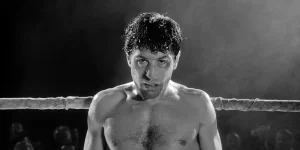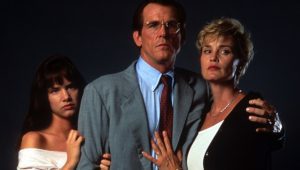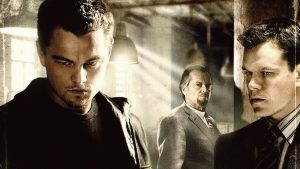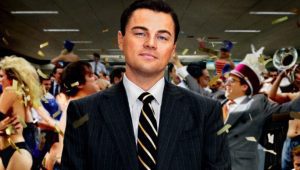Ever wonder where to start with Martin Scorsese? The iconic director has been making movies for over 50 years, racking up over 20 feature films in his illustrious career. With so many classics to choose from, it can be tough to figure out which ones define his brilliance. Well, you’re in luck. We’ve narrowed down the essential Scorsese films you need to see to understand why he’s considered one of the greatest filmmakers of all time.
From raw crime dramas to sprawling historical epics, these 10 movies showcase Marty at his best. Prepare to be dazzled by De Niro, mesmerized by DiCaprio, and left stunned by Scorsese’s mastery of film. Once you’ve watched these classics, you’ll see why Scorsese reigns supreme in American cinema. The only question left will be how soon can you watch them all again?

Mean Streets (1973)
Mean Streets was Scorsese’s breakout film, putting him on the map as a director to watch. This crime drama follows Charlie, a small-time New York gangster torn between his mob duties and his faith.
Charlie struggles with his own morality as he works his way up in his cousin Giovanni’s crime family. He questions whether he can reconcile his violent lifestyle with his Catholic upbringing. All the while, he and his buddy try to keep Giovanni’s hotheaded brother, Johnny Boy, out of trouble.

Taxi Driver (1976)
This dark and gritty psychological thriller from 1976 put both Robert De Niro and Martin Scorsese on the map. De Niro plays Travis Bickle, an unstable Vietnam vet who takes a job as a New York City taxi driver to cope with his insomnia. The grit and grime of NYC in the ’70s are fully on display, as Travis grows increasingly paranoid and disillusioned while driving fares in some of the seediest parts of the city.
Travis becomes obsessed with saving Iris, a 12-year-old prostitute, from her pimp. His vigilante mission spirals out of control, culminating in a bloody climax. De Niro’s memorable mohawk and “You talkin’ to me?” monologue have endured for over 40 years.

Raging Bull (1980)
Raging Bull is arguably Scorsese’s finest film and one of the greatest films ever made. Released in 1980, it chronicles the life of real-life boxer Jake LaMotta, played by Robert De Niro in his most iconic role. Shot in black and white, the film is a brutal and unflinching look at LaMotta’s violent life in and out of the ring.
De Niro delivers a towering performance, gaining 60 pounds to portray the overweight LaMotta in his later years. His physical and emotional commitment to the role is staggering. The fight scenes are also shockingly violent for their time, filmed with gritty realism by Scorsese and legendary cinematographer Michael Chapman.

The King of Comedy (1982)
The King of Comedy is one of Scorsese’s most underrated films. This dark satire stars Robert De Niro as Rupert Pupkin, an aspiring stand-up comic desperate to make it big. When his attempts to get on the Tonight Show are repeatedly rebuffed, Rupert hatches a plan to kidnap the host, Jerry Langford (Jerry Lewis), to take his place.
This unsettling film is a disturbing and prophetic look at celebrity culture and the thirst for fame. De Niro is brilliant as the unhinged Pupkin, delivering a performance that’s both funny and frightening. His scenes where he practices his act in front of cardboard cutouts in his mother’s basement are endlessly quotable.

Goodfellas (1990)
Goodfellas is one of Scorsese’s most acclaimed and influential films. This 1990 crime drama chronicles the rise and fall of Henry Hill, a New York mobster who works his way up the ranks of organized crime. Based on the true story of Hill and the Lucchese crime family, the film is a fast-paced, stylish, and often darkly comedic take on life in the Mafia.
Ray Liotta stars as Henry Hill, a half-Irish, half-Italian New Yorker who dreams of becoming a gangster. Joe Pesci gives a legendary performance as Tommy DeVito, a violent and unhinged member of Hill’s crew. Robert De Niro plays Jimmy Conway, a charismatic thief who takes Hill under his wing. Lorraine Bracco plays Hill’s wife Karen, who is drawn into his life of crime.

Cape Fear (1991)
Cape Fear is one of Scorsese’s most unsettling psychological thrillers. Released in 1991, it stars Robert De Niro in a sinister performance as Max Cady, a vengeful ex-con seeking retribution on the lawyer who failed to properly defend him years earlier.
Cady is intent on terrorizing Sam Bowden (Nick Nolte), his wife Leigh (Jessica Lange) and their teenage daughter Danielle (Juliette Lewis). De Niro is chilling as the manipulative and menacing Cady, who begins stalking the Bowdens and tormenting them in creatively cruel ways.
Scorsese builds suspense with long takes, ominous music and masterful editing.

The Departed (2006)
The Departed (2006) is a crime thriller that showcases Scorsese’s signature style. Set in Boston, it follows an undercover cop and a mole in the police department who are trying to identify each other while infiltrating an Irish gang.
Jack Nicholson delivers a chilling performance as the menacing mob boss Frank Costello. Leonardo DiCaprio and Matt Damon are perfectly cast as the double agents attempting to outsmart each other. The all-star ensemble also includes Mark Wahlberg, Martin Sheen, and Alec Baldwin.

The Wolf of Wall Street (2013)
The Wolf of Wall Street (2013) is a crime biopic based on the true story of Jordan Belfort, a New York stockbroker who conned his way to earning hundreds of millions in the 1980s and ’90s. This excessive film earned several Academy Award nominations and cemented Leonardo DiCaprio as Scorsese’s 21st-century muse.
Portraying the unscrupulous Belfort, DiCaprio gives a hilariously over-the-top performance. Scorsese’s kinetic direction and editing mimic the effects of the characters’ rampant substance abuse. At a bloated 3 hours long, this epic cautionary tale showcases Scorsese and DiCaprio at their most indulgent.

The Irishman (2019)
The Irishman (2019) is Scorsese’s most recent gangster epic and a return to the genre that made him famous. This sprawling crime saga spans decades, following Frank Sheeran, a World War 2 veteran who becomes a hitman for the Bufalino crime family. The movie uses CGI to de-age its stars Robert De Niro, Joe Pesci and Al Pacino, allowing them to play their characters over many years.
Like Goodfellas and Casino before it, The Irishman is a tragic and unflinching look at organized crime and its consequences. Scorsese’s direction is masterful as always, using long tracking shots, witty dialogue, and a killer soundtrack to craft a film that’s as entertaining as it is profound. The all-star cast delivers some of their finest performances, with Pesci especially shining in his first role in decades.

Casino (1995)
Casino is Scorsese’s epic crime saga of greed and excess in 1970s Las Vegas. This sprawling 3-hour film chronicles the rise and fall of a mobster, his friend, and an empire.
Ace Rothstein (Robert De Niro) is an expert gambler who is hired by the mob to run the Tangiers casino. At first, Ace runs a tight ship and the casino rakes in money. But soon, Ace’s volatile friend Nicky (Joe Pesci) causes problems with his violent temper and Ace falls for hustler Ginger (Sharon Stone). As Nicky’s reckless ambition grows and Ginger’s self-destruction escalates, their lives and the empire they’ve built threaten to come crashing down.
There we have it, our list 0f 10 best Martin Scorsese movies. What do you think about our picks? Let us know your thoughts in the comments below:










Great suggestion. I watched the Taxi Driver two weeks ago.
What about ‘Hugo’, ‘New York, New York, ‘The Last Waltz’, ‘Afterhours’ or
‘The Age Of Innocence’ and ‘ Living In The Material World’? All great films and no ‘gangsters’ in sight!!!
Great suggestion!
I wish Hugo was also in the top 10. This gem of a movie shows the versatility of Scorsese as a director.